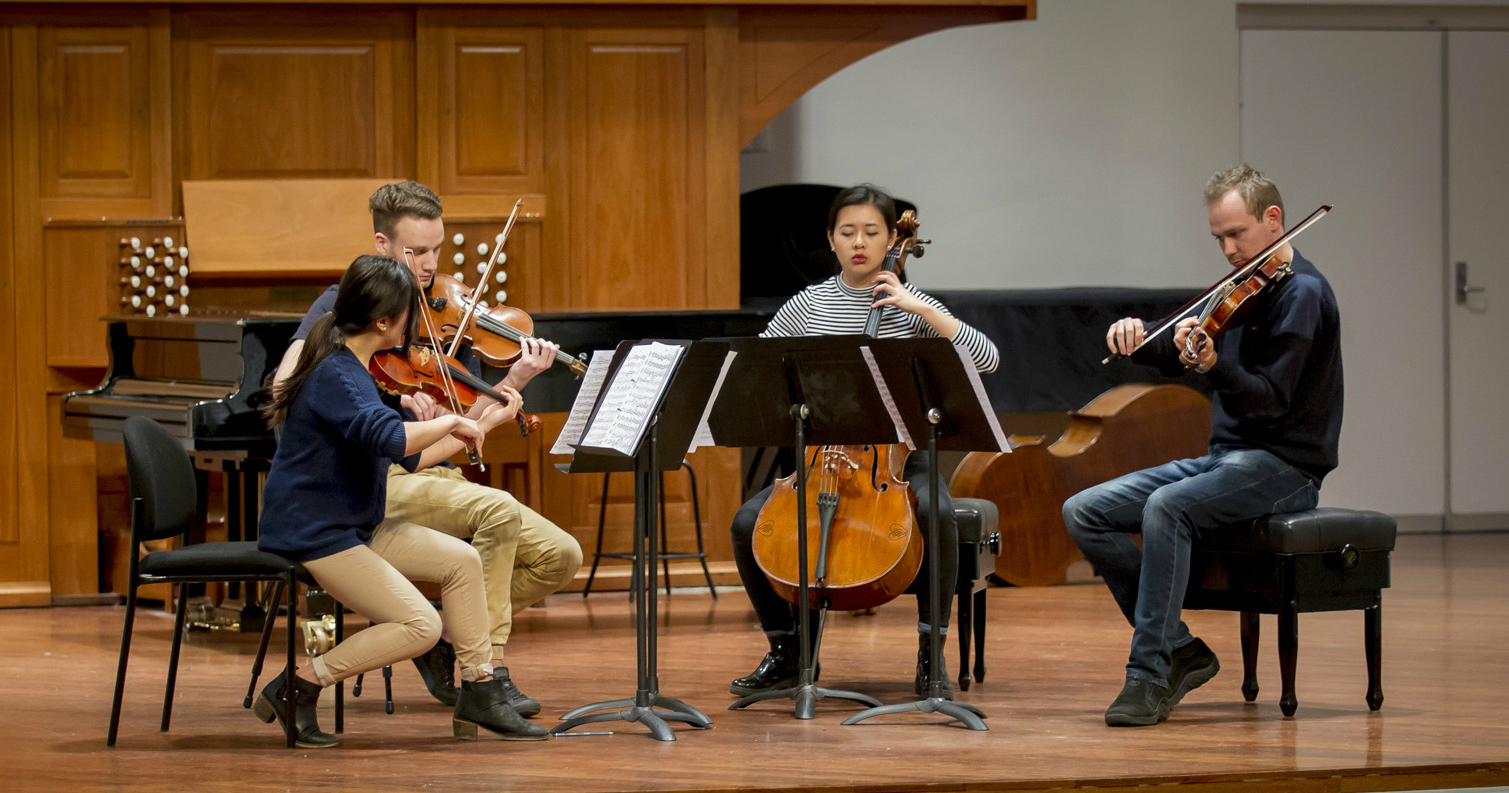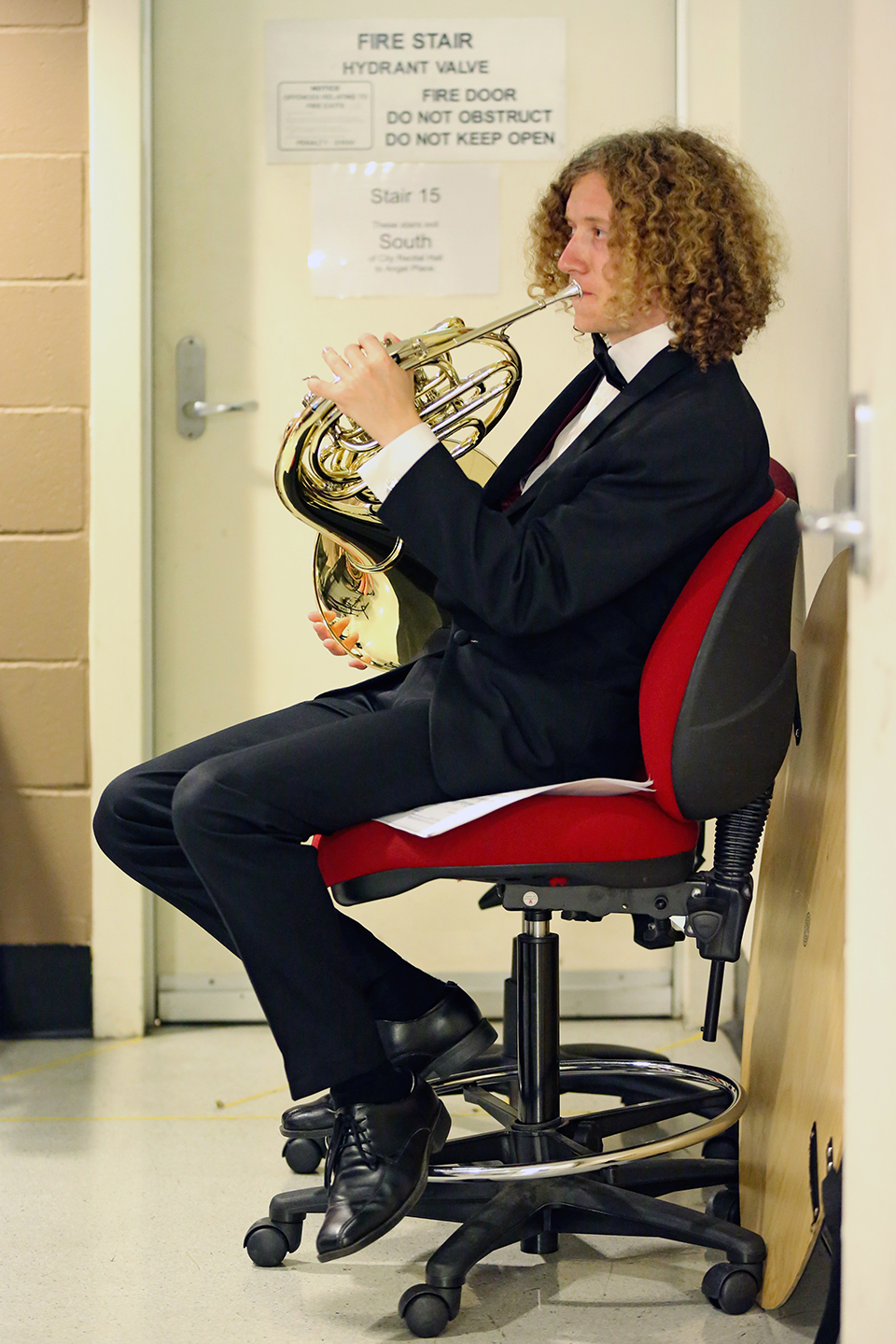Transforming music performance

Researchers believe a new study will refute the popular notion that hours of deliberate practice is alone responsible for musicians attaining an elite level of expertise
Published 17 February 2016
A pioneering study at the Melbourne Conservatorium of Music is investigating how personal motivation and quality of practice affects the development and performance of tertiary musicians.
Applying two prominent theoretical frameworks – self-regulated learning theory (to examine practice quality) and self-determination theory (to examine motivation) – researchers are working to understand more precisely how students can maximise their potential to become professional musicians and position themselves to be internationally competitive.
World leading research
The project’s leaders say the investigation of these two theories in relation to techniques for optimising music performance is the first of its kind in the world.
“The most prominent explanation for how musicians attain expert performance asserts they undergo 10,000 hours of highly structured, deliberate practiceacross at least 10 years,” says Professor Gary McPherson, Director of the Melbourne Conservatorium of Music and Ormond Chair.
However, it’s becoming clear that deliberate practice alone cannot explain how elite musicians refine and hone their skills at the highest level.

“Self-regulated learning theory and self-determination theory are major areas of research in academic learning and sports psychology, but they have rarely been applied to music learning. Using these two frameworks allows us to examine, in more detail than any previous study, how students can maximise their practice and sustain motivation.”
Professor McPherson says the project will examine a number of problematic aspects of the traditional music-learning environment, such as competition, anxiety, poorly defined personal goals, feelings of failure, and over reliance on teacher-directed instruction.
“When students practice they tend to rely on habits, rather than targeted techniques for maximising their efforts,” he says.
“Rarely do they think carefully enough about what they are doing or trying to achieve. They also tend to be over-reliant on what their teacher tells them to do without planning individual practice sessions for themselves. Our study investigates strategies for helping students to reflect on what they are doing and how their goals can be fulfilled, plus the types of thoughts and feelings that will help them persist even when they experience self-doubt or failure.”
The project is being led by Professor McPherson, in collaboration with an international team of researchers in music and psychology: Dr Paul Evans at the University of New South Wales, Associate Professor Peter Miksza at the Jacobs School of Music at Indiana University, and Professor Aaron Williamson at the Royal College of Music, London. Other members of the research team include Richard Ryan, who with Edward Deci established self-determination theory, and Barry Zimmerman, a leading authority on self-regulated learning.
Early results are promising
The project’s first year has focused on developing practice microanalysis – a technique derived from self-regulated learning theory that helps students refine their practice through the use of custom-designed techniques that enhance their attention and the strategies they employ to make their practice more efficient. With students using a strategically developed diary to record their progress, Professor McPherson says, preliminary results have been encouraging.
“We’ve been delighted by how receptive the students are to applying these techniques,” he says.
They can see they get more out of their practice by using techniques that help them tune into aspects of their learning that they may never have thought of previously.
“It’s easy to tell someone to be strategic or ask what their goals are, but we’re refining ways of getting students to think about how to define their goals in parallel with how they feel about their progress. Consequently, they develop not only the skill but also the will to push themselves further.”
Techniques are already showing results
Michael, a 23-year-old MCM student participating in the project, says the diaries have been “incredibly useful”.
“I’d never planned a practice and then evaluated if the strategies worked,” says Michael. “I’d either walk away with the goal accomplished, or frustrated. But writing down thoughts I had during practice solidified those discovery moments and helped a faster progression.”
Michael says the introduction of self-regulation and self-determination tools have extended his practice time, and his efforts have proven more productive.
“Goal-setting was the best element [of the optimisation tools]; specifically, being directed to articulate exactly how I think I will achieve those goals. These diaries invited critical thinking into how I was going to get to my end point, rather than thinking about what the end point was. This experience has helped me a lot.”
Banner image: Melbourne Conservatorium of Music students participate in a masterclass at Mimir Chamber Music Festival, 2015, photography by Sav Schulman.
